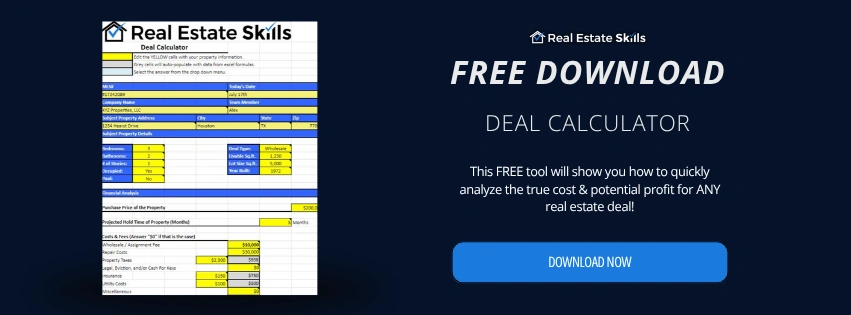How To Find Cheap Houses To Buy (FAST & FREE)!
Jul 10, 2025
In this blog, you’ll learn how to find cheap houses to buy in any market using four proven strategies.
We’ll walk through how to use tools like Redfin and keyword searches to uncover discounted properties, and show you how to analyze deals step by step using free calculators. Whether you're flipping, wholesaling, or building a rental portfolio, this guide will help you confidently identify and profit from the best deals available.
- How to Find Cheap Houses to Buy
- Using Redfin to Find Cheap Properties
- Sorting by Price Per Square Foot
- Sorting by Total Price to Find Cheapest Homes
- Using the Fixer Upper Filter
- Keyword Search Method for Investment Properties
- Intro to Deal Analysis with Free Calculator
If you’re serious about doing your first real estate deal, don’t waste time guessing what works. Our FREE Training walks you through how to consistently find deals, flip houses, and build passive income—without expensive marketing or trial and error.
This FREE Training gives you the same system our students use to start fast and scale smart. Watch it today—so you can stop wondering and start closing.
How to Find Cheap Houses to Buy
Today, I'm breaking down how to find cheap houses to buy using strategies that work in any market. These methods cost nothing to use and can lead to serious profits.
These are the exact strategies I used to become a multi-millionaire before age 30, build a $10 million real estate portfolio, and generate over $400,000 in annual passive income.
I'll also walk you through a real deal using my personal deal calculator—the same tool I use to analyze every real estate investment I make. You can download it completely free using the link in the description.
Whether you’re wholesaling, flipping houses, or buying rentals, this post will help you find better deals, avoid costly mistakes, and earn more on every transaction.
Let’s dive into the step-by-step process.
Using Redfin to Find Cheap Properties
To start, I pull up Redfin and apply a few simple filters. This is the exact process I use in any market.
You don’t need fancy software—just tools like Redfin, Zillow, Realtor.com, or Homes.com. The key is knowing what to look for.
For this example, I’m analyzing Milwaukee, Wisconsin—a market with solid investor opportunities.
I search for single-family and multi-family properties and filter out condos and townhouses. Then I switch the view to a table layout to easily sort and compare.
Read Also: Redfin Vs. Zillow In 2024: Estimates, Accuracy, & More
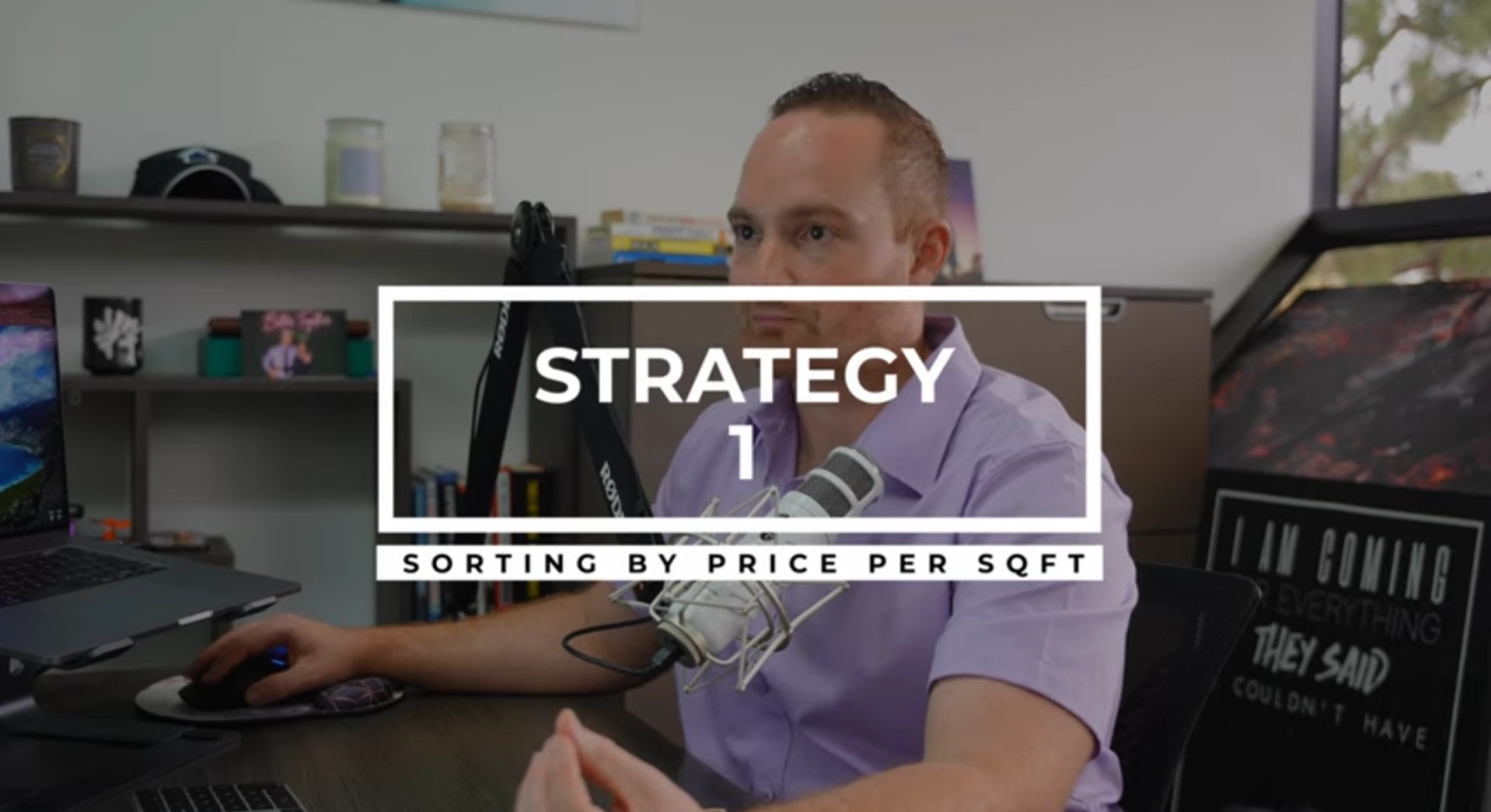
Sorting by Price Per Square Foot
Next, I sort the listings by price per square foot. This reveals the cheapest properties based on how much you're paying for each square foot of space.
One listing showed a house priced at just $2 per square foot—cheaper than a slice of pizza! Of course, it was a gutted, boarded-up foreclosure, but that’s where opportunity lies.
Another example showed a duplex listed at $27 per square foot—a rough property, but one that could become a great cash-flowing asset with the right rehab.
Sorting this way reveals the kind of distressed properties that real estate investors can turn into equity and cash flow.
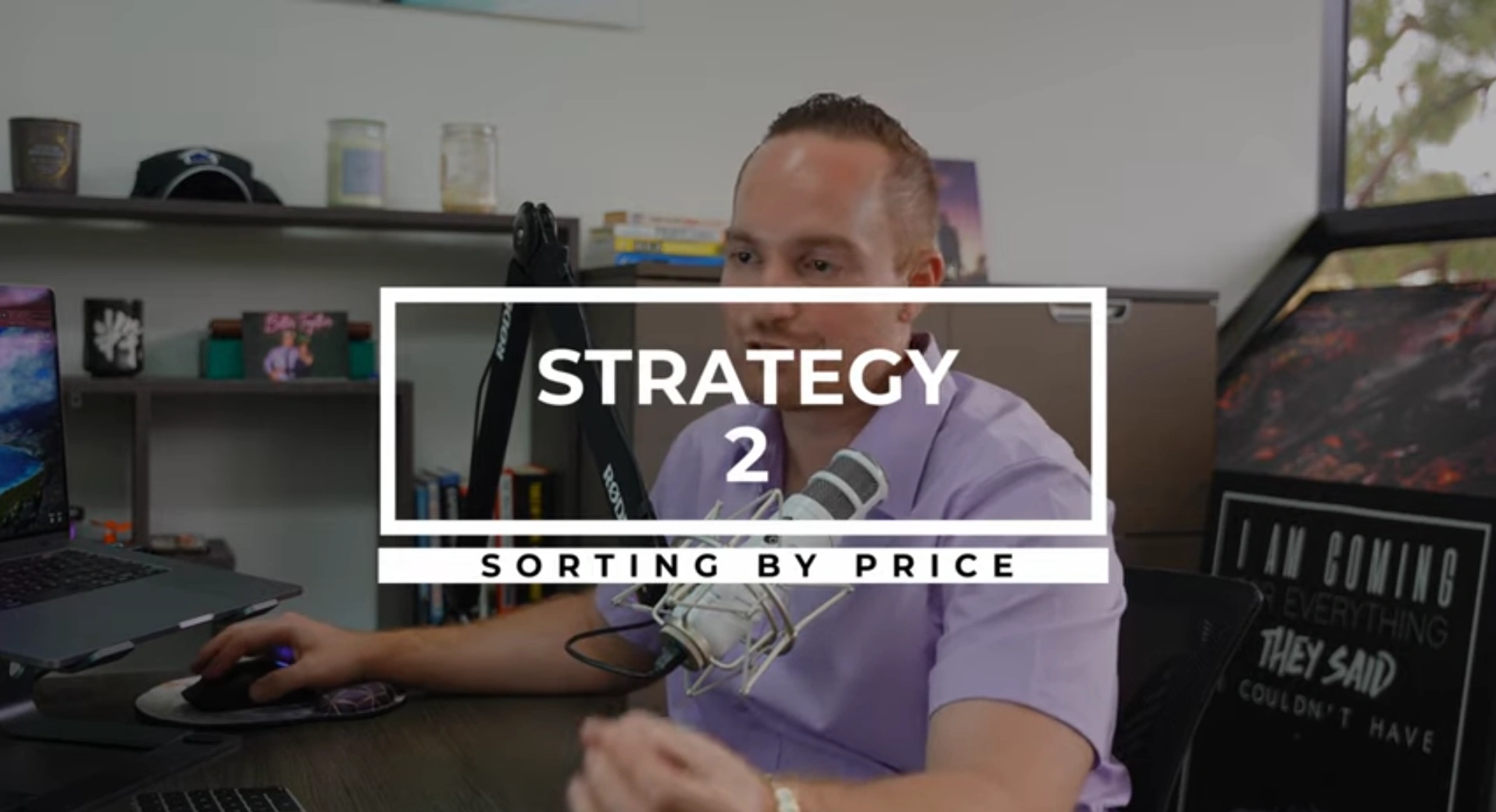
Sorting by Total Price to Find Cheapest Homes
If you're a beginner, sorting by total price is even simpler. Just list homes from lowest to highest price.
In Milwaukee, I found dozens of homes under $100,000. Many need some work, but even first-time buyers can create equity by improving them.
You can flip, rent, or wholesale these properties. Either way, you're turning a cheap buy into a profitable investment.
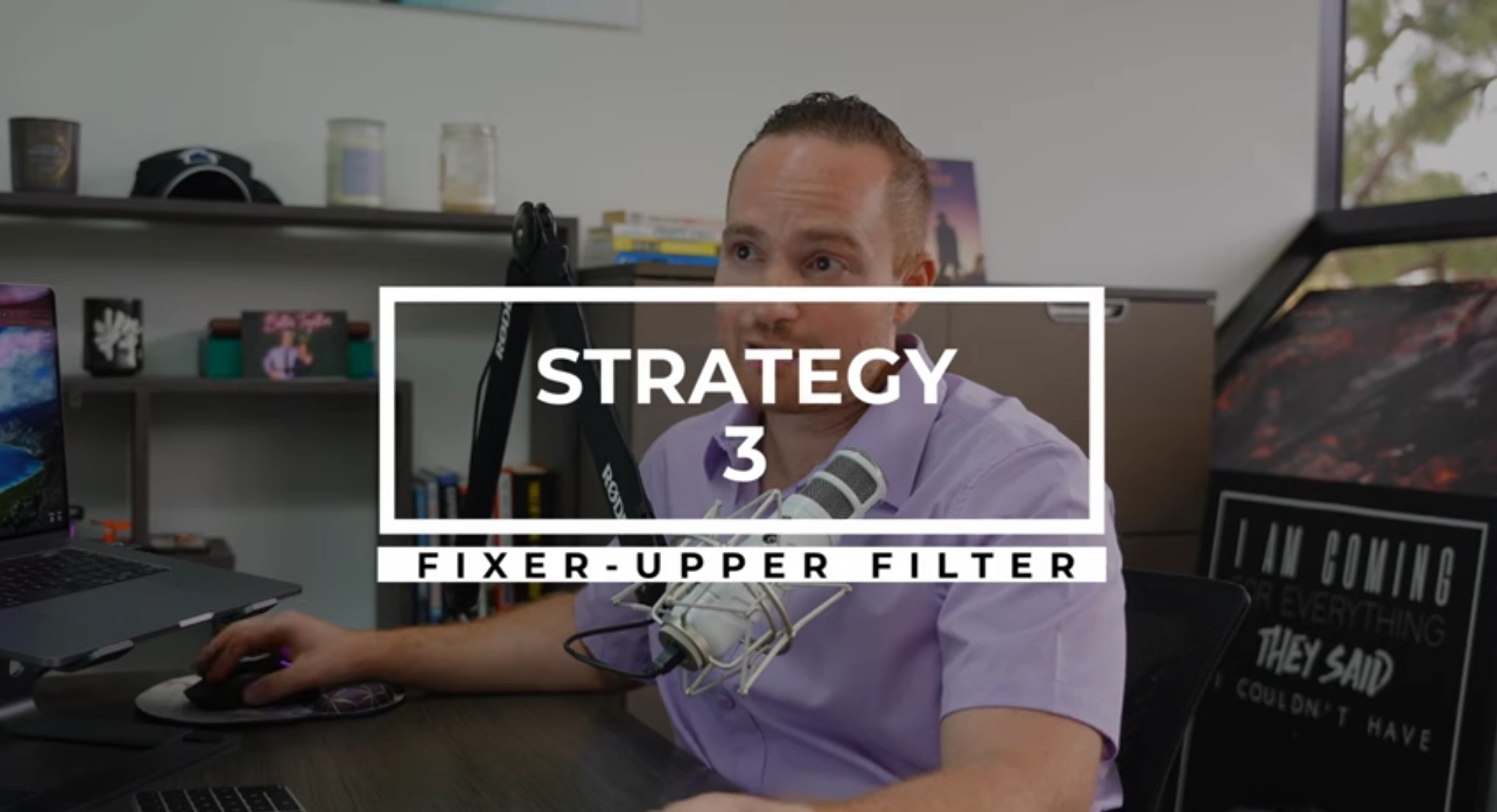
Using the Fixer Upper Filter
Redfin has a powerful “Fixer Upper” filter that’s perfect for investors. It shows homes that need renovation—exactly what we want as value-add buyers.
In this example, filtering for fixer-uppers in Milwaukee surfaced 11 properties, including a duplex for just $70,000. It needs work but offers huge potential.
Keep in mind this filter won't catch every deal, but it's a great starting point for distressed properties in any city.
Read Also: Fixer Upper: The Ultimate Guide | Real Estate Skill
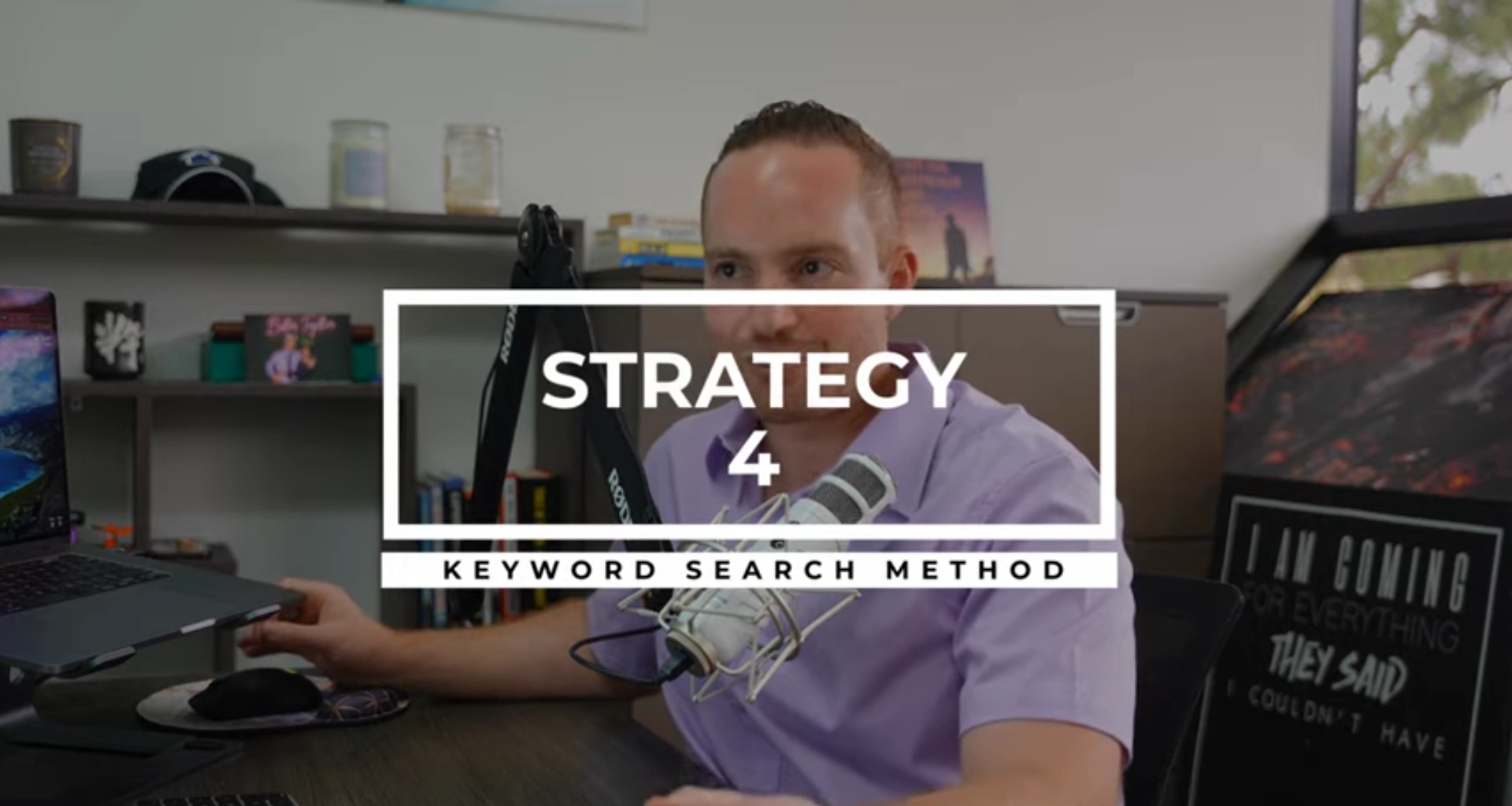
Keyword Search Method for Investment Properties
The keyword search method is another powerful tool. You can search for terms like:
- Cash
- Investor
- Investment
- Rental
- TLC
- Contractor
Using these keywords reveals listings written for investors or cash buyers. It helps uncover deals buried in the MLS that aren’t obvious on the surface.
For example, one triplex I found using the keyword “cash” was priced at $31/sqft and ready to rent. Another listed as a “rental” generated $950 per month and was selling for $60,000—a solid return on investment.
This method helps speed up your search and target the right listings quickly.
Intro to Deal Analysis with Free Calculator
Most people stop at finding the deal, but that’s just the beginning.
The real profits come from analyzing the deal. That’s where my free calculator comes in. I use this tool to evaluate every deal before I buy.
I'll show you exactly how to run numbers on a fix-and-flip deal and determine if it makes sense.
Estimating Holding Costs and Timeline
When analyzing a flip, you need to factor in holding costs like property taxes, insurance, utilities, and closing fees.
I also estimate renovation time using a simple rule: 1 week per $10,000 in repairs. For example, an $87,000 rehab would take around 9 weeks, plus 60 days to list and close. That puts the project timeline at about 5 months.
Evaluating Deal ROI and Profit Potential
Plugging all the numbers into the calculator, we get the total cost, including purchase, rehab, holding, and sales costs.
If the resale price is $250,000 and you're all-in at $185,000, that’s a potential profit of over $50,000—or a 28% ROI.
That’s a great flip. But what if you don’t want to manage the rehab?
You can wholesale it instead—flip the contract to another investor and collect a wholesale fee (say $20,000), all in just a few weeks. That’s the power of creative exit strategies.
Read Also: 10 House Flipping Tips To Maximize Your ROI
Switching to Rental Strategy with Cash Flow Calculator
You can also hold the property as a rental.
Using the rental calculator, we input the purchase price, down payment, and a more conservative rehab budget. Then we estimate rents using comps from Zillow or other sources.
In our case, the duplex brings in $2,300 per month, including utility reimbursements. After expenses, it generates about $660/month or nearly $8,000/year in cash flow.
That’s a 9% cash-on-cash return—not including mortgage paydown or appreciation, which builds wealth over time.
Own 10 properties like this, and you’ve replaced a $75K salary with passive income.
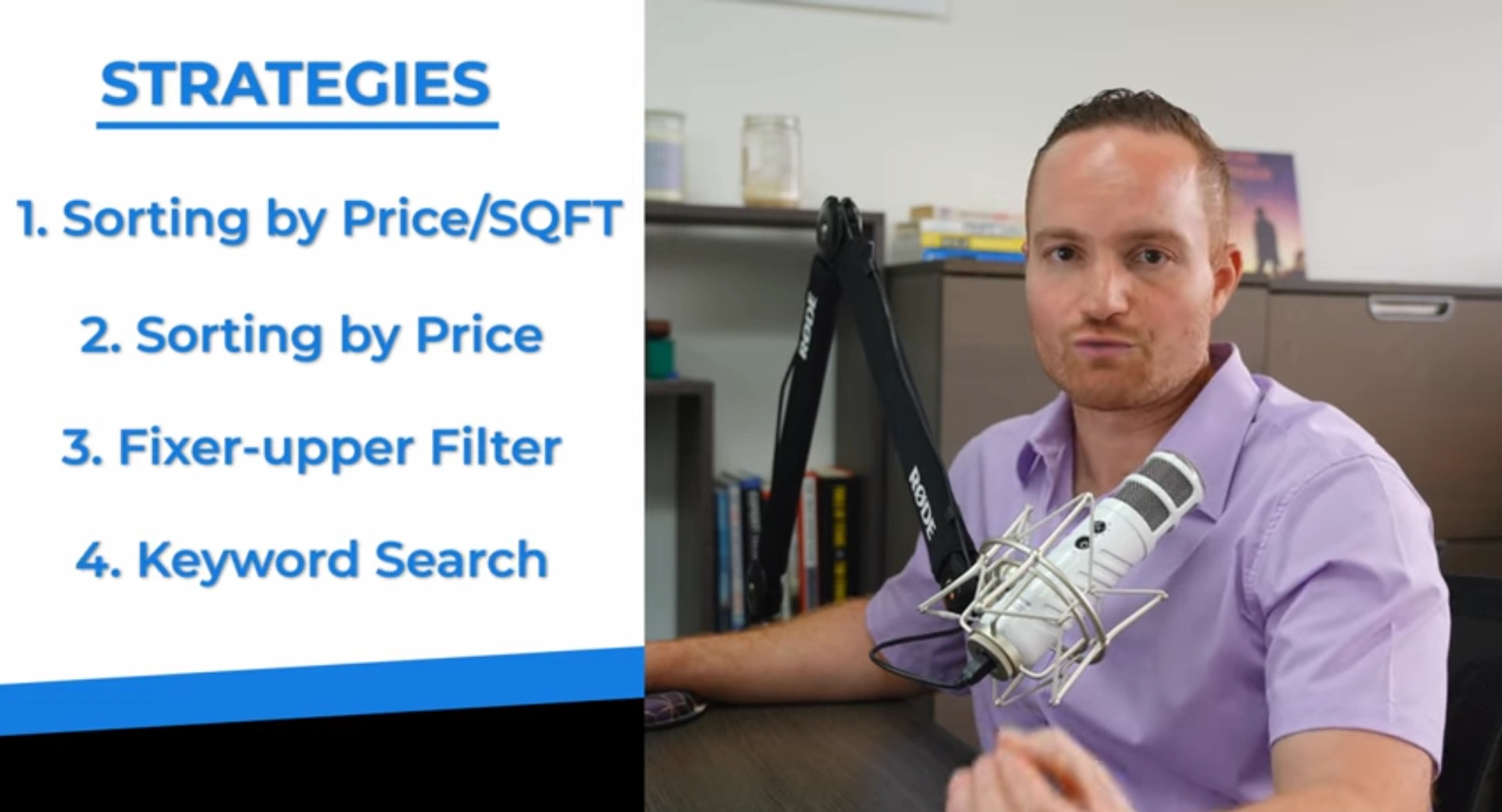
Final Thoughts
You’ve now learned how to find cheap houses to buy using four proven strategies:
- Sort by price per square foot
- Sort by total price
- Use the “Fixer Upper” filter
- Use the keyword search method
Then we went deep into analyzing deals using free calculators that I use daily. These tools help you evaluate flips, rentals, and wholesale opportunities with confidence.
Remember, finding the deal is step one. Running the numbers is where fortunes are made.
If you haven’t yet, download the free calculators from Real Estate Skills and start using them to analyze deals like a pro.
Stop relying on beginner tactics like the 70% rule. With our tools and training, you’ll be smarter, faster, and far more profitable.
If you’re serious about doing your first real estate deal, don’t waste time guessing what works. Our FREE Training walks you through how to consistently find deals, flip houses, and build passive income—without expensive marketing or trial and error.
This FREE Training gives you the same system our students use to start fast and scale smart. Watch it today—so you can stop wondering and start closing.
*Disclosure: Real Estate Skills is not a law firm, and the information contained here does not constitute legal advice. You should consult with an attorney before making any legal conclusions. The information presented here is educational in nature. All investments involve risks, and the past performance of an investment, industry, sector, and/or market does not guarantee future returns or results. Investors are responsible for any investment decision they make. Such decisions should be based on an evaluation of their financial situation, investment objectives, risk tolerance, and liquidity needs.

